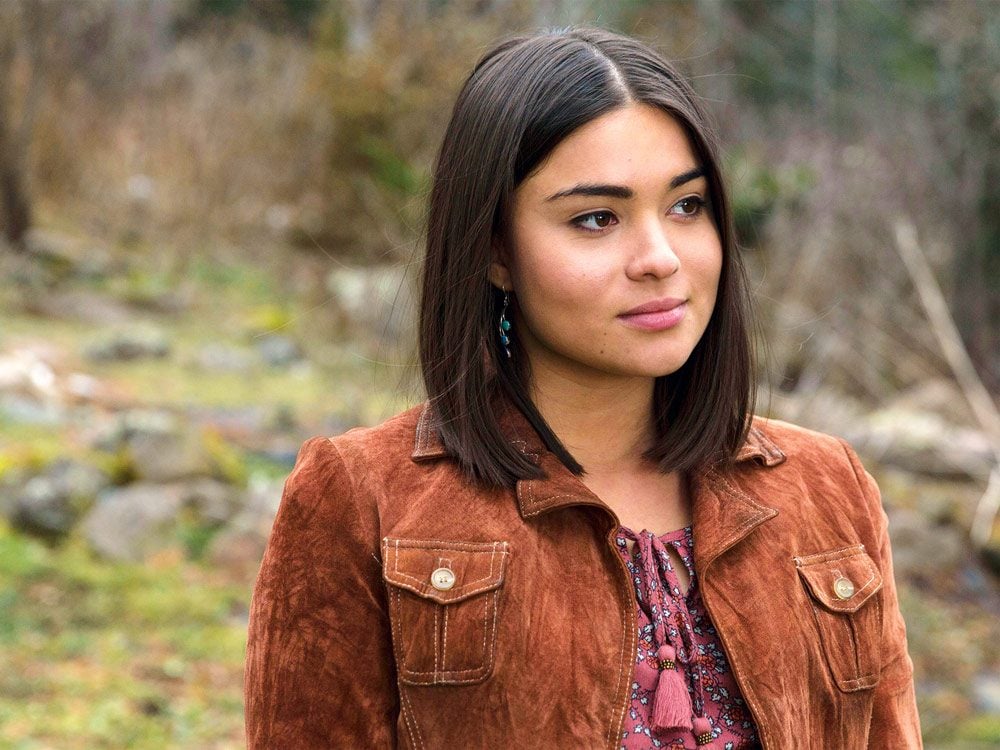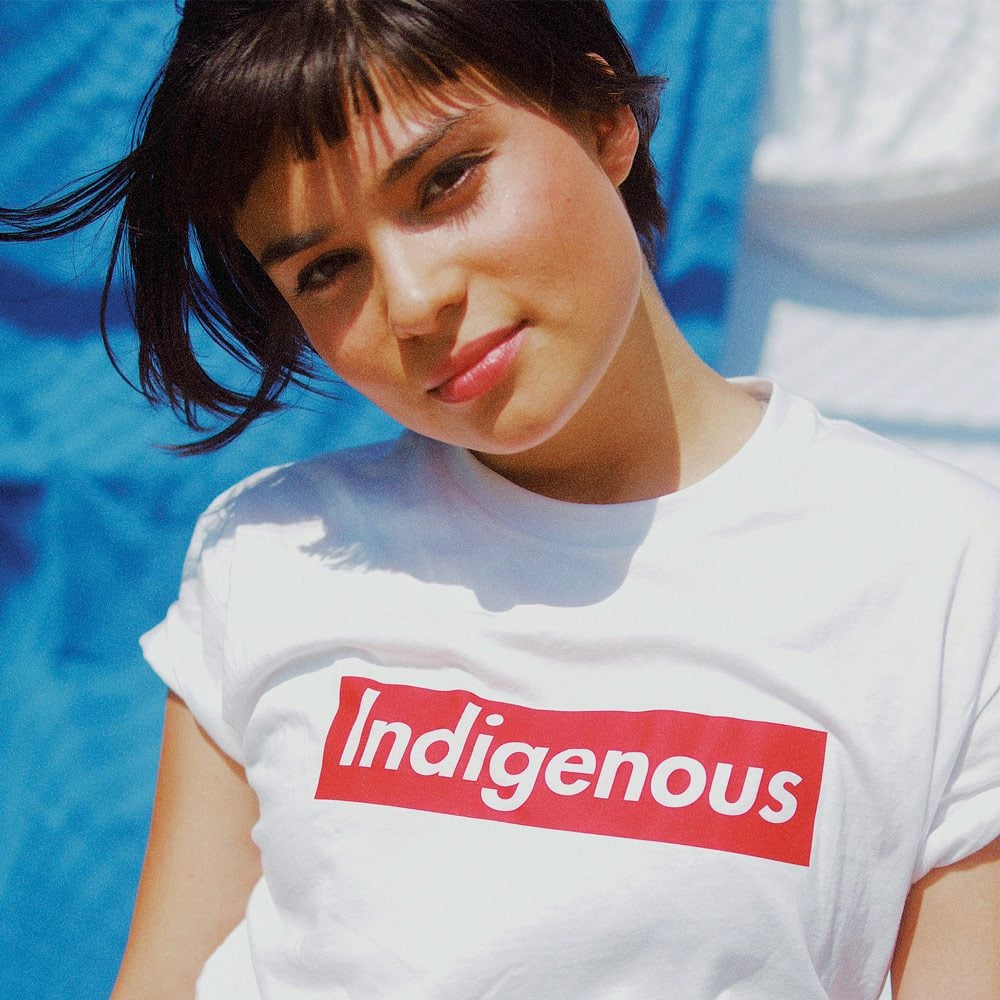
“In our culture, we believe that we must live up to our names…”
My first name, Kawennáhere, was given to me by my Tóta—my grandmother—when I was born. It translates to “Her word is above,” meaning that what I have to say is important. In our culture, we believe that we must live up to our names, and so I aspire to live up to mine—by telling stories of my culture through film and by using my platform to uplift Indigenous voices.
I grew up in Kahnawà:ke Mohawk Territory on the south shore of the St. Lawrence River, across from Montreal. The second oldest of four sisters in my close-knit family, I was incredibly sensitive and pretty creative as a kid, and I formed a deep-seated passion for film very early in life. I watched VHS tapes religiously and joined a community theatre on my “rez.” My debut acting role was as a seven-year old munchkin in the Turtle Island Theatre Company’s production of The Wizard of Oz. My mom witnessed how much I loved acting and submitted my name to a talent agency in Montreal when I was 10. Through my teen years, I only worked sporadically, as most projects shooting in Montreal were French and there were minimal roles for Indigenous actors.
Everyone expected that I’d attend theatre school after graduating from high school, but I decided that acting was too unreliable and that I wouldn’t ever be able to make a career out of it. I discovered that my second passion was wanting to help Indigenous people. So, I co-founded the Kahnawà:ke Youth Forum, and I studied correctional intervention at John Abbott College with the intention of becoming a social worker. I was working at the Native Women’s Shelter of Montreal and had nearly given up on acting when I was cast in my very first leading role in the feature film Rhymes for Young Ghouls.

“It dawned on me—I have stories to tell and a voice that is worth being heard.”
It was the first time I’d recognized my own history, with characters that resembled my own family, in a film. I knew that I couldn’t be happier doing anything else in my life. My role as Aila landed me a best actress nomination at the Canadian Screen Awards, and the film was named one of the top 10 films at the Toronto International Film Festival. Most importantly, it helped me prove to myself that I could actually pursue film for a living.
But the industry hadn’t caught up yet to the push for diversity. On multiple occasions, I’d come in second for potentially life-changing roles, many of which were “whitewashed”—with white actors playing roles that were specifically written for Indigenous actresses. I had spent nearly two years trying to make ends meet without much success, and I yearned for another opportunity in which some filmmaker would feel compelled to tell the stories from my community, ones that reflected my family’s experiences, when it dawned on me—I have stories to tell and a voice that is worth being heard.
So, I combined my experiences at the Native Women’s Shelter and my passion for Indigenous rights with my love for film, and I wrote my debut feature film, Stolen, which explores how the system plays a part in the issue of missing and murdered Indigenous women. It was a hugely empowering moment, and encouraged me to continue telling stories. I have since turned the camera inward, exploring my mom’s upbringing on the rez in my second short film, Rae, which won Best Youth Work at the ImagineNATIVE Film Festival and was an official selection of the Palm Springs ShortFest. I have multiple projects in the works as a creative behind-the-lens. I believe that creating my own work instilled a sense of confidence within myself that has helped me in my acting career.
Don’t miss these Canadian heroes, including Cree code talker Charles “Checker” Marvin Tomkins.

“Oftentimes I am the only Native person in the room.”
Since then, I have worked full-time in roles such as Sam Duchene in CTV’s Cardinal, Lilith in the Netflix original The Order, and Sam Black Crow in Neil Gaiman’s American Gods, while I continue to pursue passion projects as a filmmaker.
I’m so grateful to be able to do what I love as a career, and to represent my community while doing it, but oftentimes I am the only Native person in the room. The industry still has a long way to go, but I am a part of a young generation of Indigenous creatives in film who are relentlessly pursuing proper representation of our stories.
Moving forward, I will continue to balance my life in this demanding industry, by visiting my community, and taking Mohawk classes at the University of Toronto. Maintaining that connection to my culture is integral to my work and my well-being. Any success I’ve had I attribute to my supportive family and community. I strive to honour my Tóta and the name she has given me, by telling stories that explore the complicated and proud nature of what it means to be Mohawk.
For more information about Devery’s career in front of and behind the camera, and her multiple projects and pursuits, please visit her Instagram.
Next, learn how Buffy Sainte-Marie is changing Canada for the better.